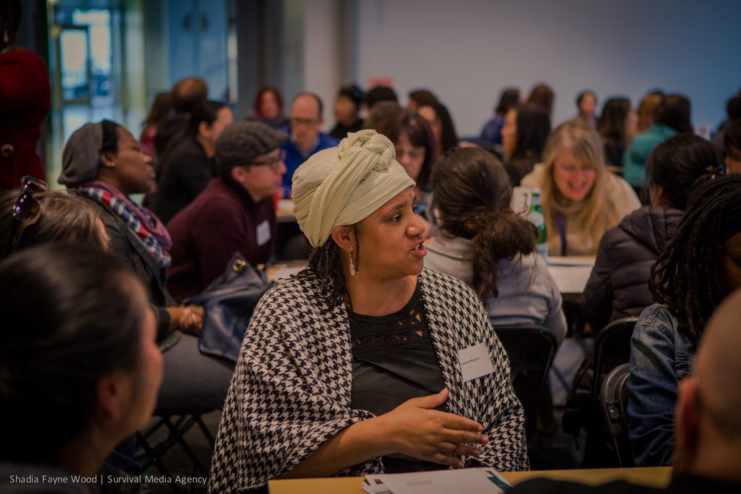
Coherence Happens Through Purposeful Goals: Zooming in on the Lead by Learning practice Making Sense of Goals Collectively
Coherence is a new favored word in the pursuit of educational improvement. Coherence is an elusive term. However, much more concrete, and assumed in “coherence,” is the notion of working towards purposeful goals.
It is widely accepted that shared vision and a strong sense of purpose are critical components to creating an innovative work culture. “Knowing your why” is key to personal drive for improvement and essential to successful decision making in complex work environments. Yet inside of school systems cultivating vision and purpose is often subsumed by program implementation plans. The program or the benchmark takes the place of a vision. We’re doing PBIS (Positive Behavior Intervention Supports) instead of “How do we want students to feel at our school? What would indicate that they feel a sense of belonging? What would indicate that students have access?” This kind of collective learning is an important part of the work of getting better.
Both cultivating shared vision and program implementation are important; in fact, the success of the implementation will hinge on the degree to which practitioners understand and connect with its larger purpose. The widespread thinking seems to be that inviting teachers into the visioning process will undermine their commitment to the adopted program. Yet it is through making sense of goals together that the program implementation can become more successful. This sense making can happen through continually returning to these three questions:
What are we trying to do?
Why does this matter?
How will we know if we are making progress?
Recently at our Teacher Leader Network kickoff session we asked our principal/teacher lead teams to talk about purposeful goals. Teams stressed the importance of unpacking the ideas inside of the language of the goals and figuring out how to determine progress. They addressed the following questions as a lead team to prepare for engaging their staffs in the goal setting process.
Questions to prepare for collective, purposeful goal setting
- What are the leader’s non-negotiables?
- Why does this matter? How it is connected to what we value for our teachers and our students?
- What assessments and data sources do we already use in the classroom and as a school that will tell us something about progress towards this goal? Do we have a way to calibrate how we use them?
- How will we give everyone on staff an opportunity to make sense of the goal?
- How can we help each teacher feel that this is relevant to them?
This article was written in September 2019. Mills Teacher Scholars changed their name to Lead by Learning in the fall of 2020.
